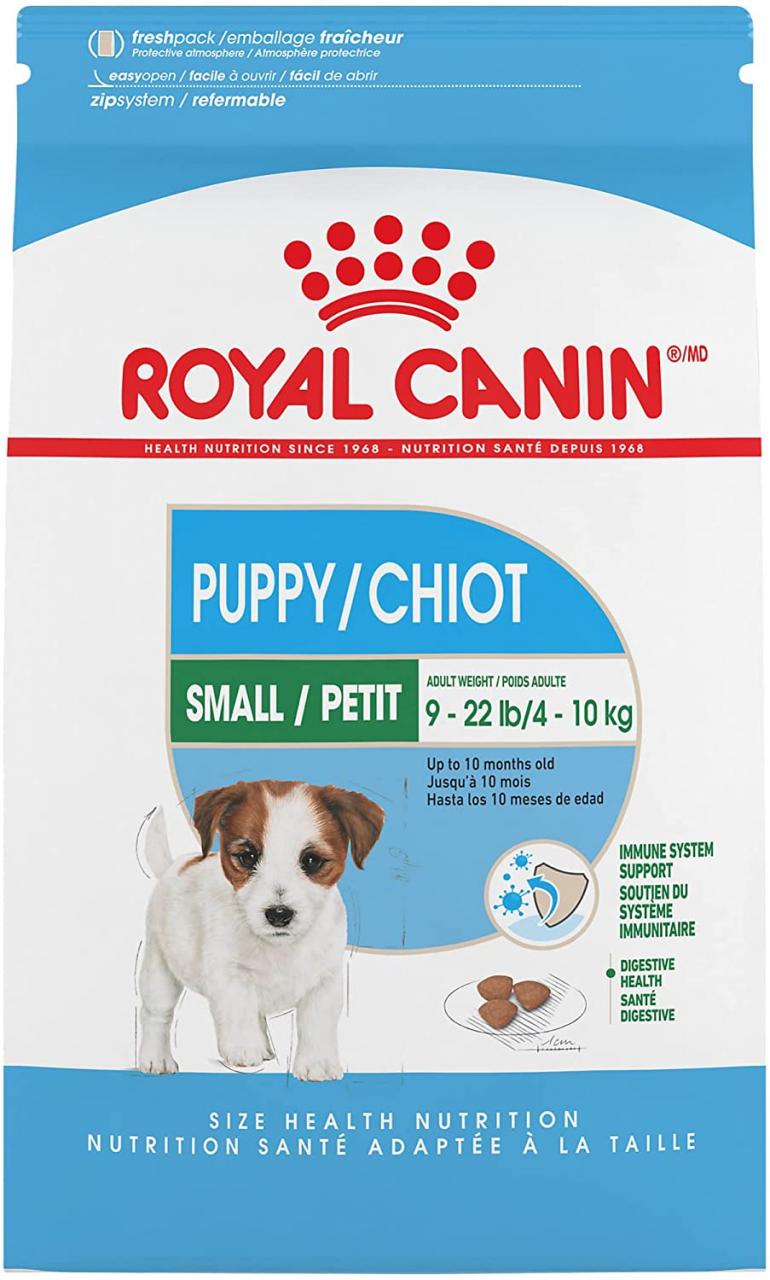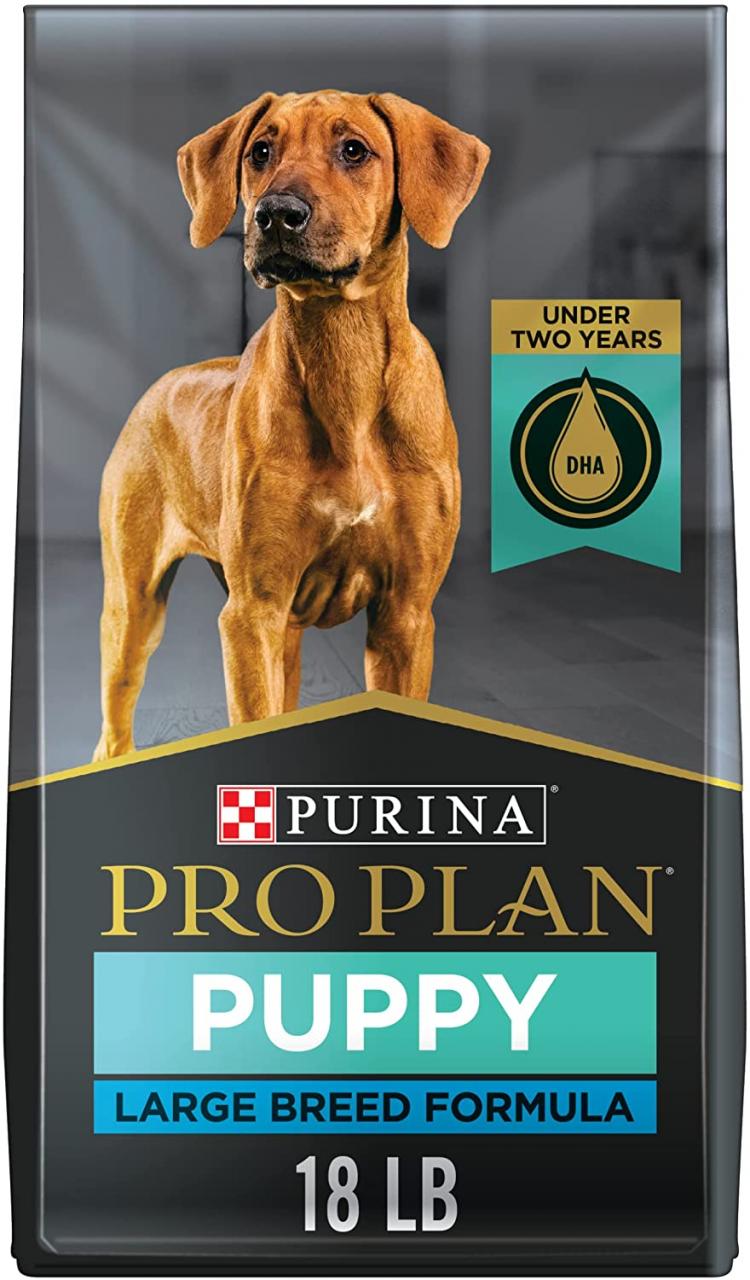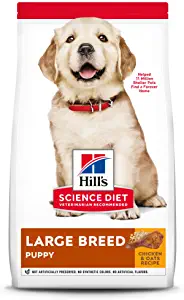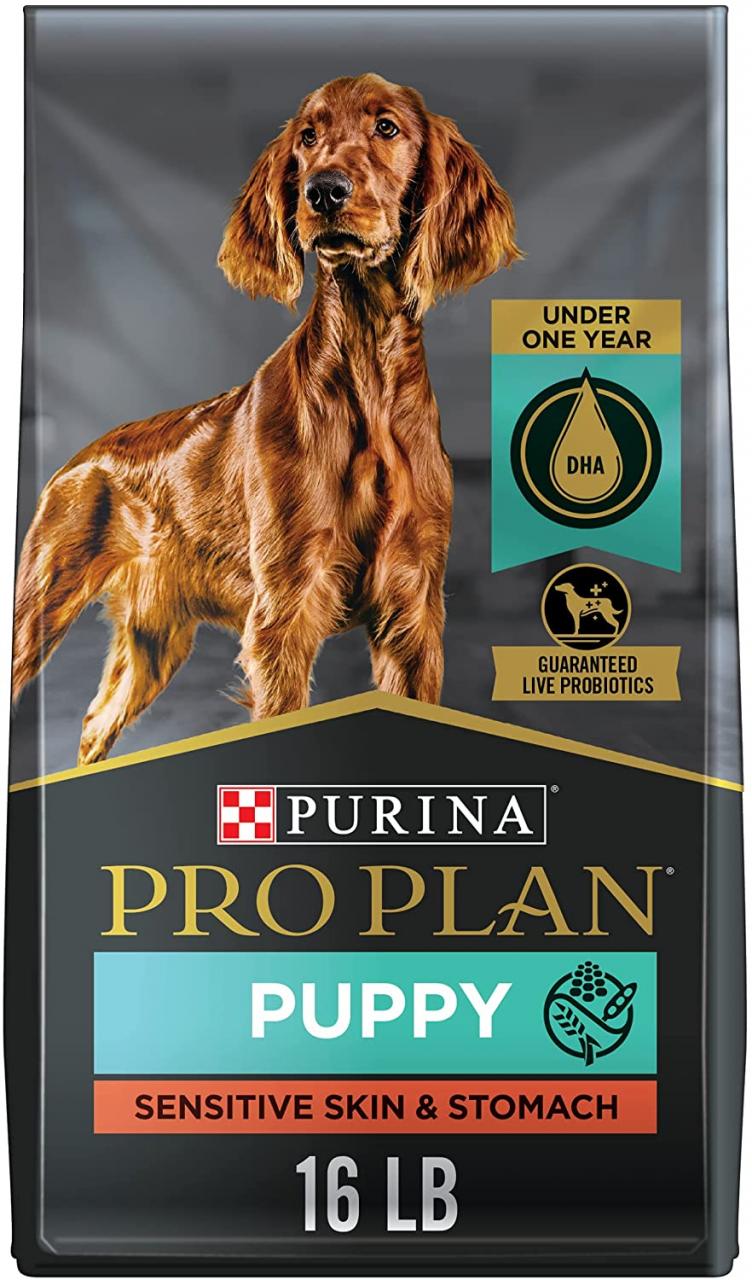If you’ve ever brought a new puppy home, you know how much fun it can be. Everything about them is cute — from the way they waddle around the house and tip over to the look on their face when they’re about to fall asleep — plus their paws smell like tortilla chips. But owning a puppy also leads to a million questions. You’ll wonder what’s okay to let them eat. Grass? A little. Your roommate’s CBD gummies? Definitely not. CBD for dogs? Maybe, after talking with your vet. And just know that they’re gonna try to eat another animal’s poop. (It’s okay if you don’t catch them in time. They can handle it.)
And because there are a million different brands with fancy marketing campaigns poised to play on your emotions — and a lot of strong opinions on the subject — the decision can be complicated. To help you narrow the field, we asked nine veterinarians to help us find the best of the bunch for all kinds of puppies.
Choosing the right food for your 8-week-old puppy is crucial to support their growth and development. It would help if you chose high-quality puppy food specifically formulated to meet their nutritional needs. Look for a brand that uses high-quality ingredients, like meat, poultry, or fish, as the first ingredient. When selecting the best food, please read the label carefully to ensure it provides a balanced blend of protein, fat, carbohydrates, vitamins, and minerals. It’s best to feed your puppy small, frequent meals throughout the day and avoid feeding them table scraps or human food. Always provide fresh and clean water and keep an eye on your puppy’s weight and overall health. Remember, it’s essential to consult with your veterinarian for specific recommendations based on your puppy’s breed, size, and overall health. Following these tips and choosing the best food for your puppy can help them grow up healthy and happy.
Choosing the best food for an 8-week-old puppy is essential because this is a critical time in their development. At 8 weeks old, puppies are transitioning from their mother’s milk to solid food, and they need a nutritionally balanced diet to support their growth and development. High-quality puppy food will balance the protein, fat, carbohydrates, vitamins, and minerals your puppy needs to grow and thrive. Feeding your puppy the right food at this early age can also help prevent health problems later in life. For example, a diet that is too high in fat or calories can lead to obesity, while a diet deficient in specific nutrients can lead to deficiencies and health problems. Therefore, it’s essential to choose a high-quality puppy food specifically formulated for your puppy’s nutritional needs at this stage of its development.
What can I feed my 8 weeks old puppy?
Congrats on your new pup! At 8 weeks old, your pup is still getting used to its new home and might have recently stopped nursing from its mom. Here are some ideas for what to feed your furry friend: Puppy food: Go for high-quality, puppy-specific food with real meat as the top ingredient that meets your pup’s nutritional requirements. Wet food: If your pup has trouble chewing or you want to add some variety to their diet, consider adding some wet food to their meals. Treats: Puppies love treats, and they can provide extra nutrition and serve as a reward. Opt for treats explicitly designed for puppies that are small enough for them to chew easily. Feeding your pup small, frequent meals throughout the day is essential to support their growth and development. Ask your vet how much and how often to feed your pup based on their breed, size, and activity level. Make sure to provide fresh water for your pup at all times.
How much should you feed a 8 week old puppy?
Determining the right food to feed your 8-week-old puppy requires considering multiple factors, including breed, size, weight, and activity level. As a general guideline, feeding puppies 3-4 small meals per day is recommended until approximately 4 months of age, at which point meal frequency can be reduced to 2-3 times per day. Feeding amounts will vary based on the individual needs of the puppy. For instance, small breed puppies may require 1/4 to 1/2 cup of puppy food per meal, while more giant breed puppies may require 1/2 to 1 cup per meal. It is essential to adhere to the feeding guidelines provided on the puppy food packaging and adjust the amount accordingly based on your puppy’s specific needs.
It is crucial to avoid overfeeding, which can lead to excessive weight gain and future health complications. Conversely, underfeeding can negatively impact your puppy’s growth and development. If you are still determining how much to feed your puppy, seek the advice of a veterinarian who can provide expert guidance on appropriate feeding amounts for your puppy’s unique requirements
How many meals a day should a 8 week old puppy have?
When you have an 8-week-old puppy, it’s important to feed them several small meals throughout the day to support their growth and development. Aim to give your furry friend three to four meals per day until they’re around 4 months old. As they get older, you can decrease the number of meals to two to three per day. Keep in mind that the exact number of meals may vary depending on your pup’s breed, size, and activity level. It’s a good idea to consult with your vet to determine the best feeding schedule and portion size for your specific puppy.
Should I give my 8 week old puppy milk or water?
When providing fluids for your 8-week-old puppy, water is the best option. Your puppy should always have access to fresh, clean water, as they need a lot of fluids to stay hydrated. However, it’s important not to give them too much water at once, as this can lead to digestive issues like bloating. To prevent overconsumption, try offering water in small amounts throughout the day or using a shallow water bowl. Avoid giving your puppy cow’s milk, which can cause digestive problems like diarrhea. If you’re concerned about your puppy’s hydration or nutritional needs, it’s always best to consult your vet. They can help you determine your puppy’s best diet and hydration plan.
Our Top Choices
Best overall dry food for small-breed puppies

We talked to three vets, and they all said that Royal Canin puppy foods are legit. Zacharias, who’s raised six of her own dogs, swears by it, and Dr. Sara Ochoa, a vet in Texas and a consultant for doglab.com, thinks it’s great because it’s made just for dogs of specific sizes and even certain breeds, like Chihuahuas and French bulldogs. And if you need to figure out what breed your little pup is, Royal Canin still has food for small, medium, and large puppies that can be different from their breed.
Best overall food for large-breed puppies

So we asked four vets for advice, and they all agreed that Purina Pro Plan puppy foods are the way to go if you’ve got a giant breed. The cool thing about Purina is that all their foods are researched and tested by vets who specialize in nutrition, so you know it’s gonna be good. Johnson thinks it’s dope that Purina is fearless in recalling their food if needed, which means they’re constantly testing it to ensure it’s high quality. Purina Pro Plan Focus is a winner with most pups, even those who are super picky about their food.
Best (less-expensive) food for large-breed puppies

We talked to some experts, and three suggested Hill’s Science Diet for puppies. Dr. Jessica Kirk thinks it’s tight because the food went through AAFCO feeding trials, you can find it at many pet stores, and it’s affordable for most pup owners. But here’s the deal – no matter what big-breed-puppy food you choose, Kirk says you should ensure it’s been tested in AAFCO feeding trials, not just designed using AAFCO guidelines. “Don’t be fooled by the packaging,” she says because it can be tricky.
Best food for puppies with sensitive stomachs

Dr. Chyrle Bonk from Doggie Designer knows what’s up. She’s all about Purina Pro Plan and fed it to her last two puppies. She especially recommends it for pups with sensitive stomachs since it’s made with real meat and probiotics to help keep their tummies healthy. The kibble size is just right for any mouth, even the teeny tiny ones. And you can find it anywhere, so it’s an easy pick for any pup parent.
Where should I feed my puppy?
You should totally feed your puppy at home in a chill spot where they can eat in peace. Make sure to keep a regular feeding schedule, usually around 3-4 meals a day for little pups, and pick out some top-notch puppy food that has all the nutrients they need. Talk to your vet to figure out the best feeding plan and type of food for your specific pup based on things like their breed, size, age, and overall health.
Activity feeding
Activity feeding is when you give your dog their meals in smaller portions throughout the day as a reward for completing an activity or task. This can be super helpful for dogs who eat too fast or too much, as it helps them control their food intake and gives them an extra incentive to be active and use their brain. It’s essential to check with your vet to ensure activity feeding is a good fit for your dog and determine how much food your dog should get for each meal.. How to know if your puppy is fat To know if your puppy is overweight, you can check their body condition score by feeling their ribs and waistline. Your pup might carry extra weight if you can’t quickly feel their ribs or see a visible waistline. If your pup seems lethargic or struggles to move around, this could also be a sign of excess weight. If you’re worried about your puppy’s weight, talk to your vet, who can help you develop a plan to get your pup back to a healthy weight.
Quality of Food
The food you give your puppy can make a difference in its health. It’s a good idea to pick high-quality food with good ingredients and made explicitly for your pup’s nutritional needs. Check the food label to ensure that it has real meat or fish as the main ingredient, and avoid foods with fillers like corn or soy. The AAFCO sets nutritional standards for pet food, so make sure the food you choose meets these standards. If you need help deciding which food to choose, talk to your vet for advice based on your pup’s unique needs.
Free Feeding vs. Feeding on a Schedule
When considering how to feed your puppy, there are two main methods: free feeding and feeding on a schedule. Free feeding involves leaving food out all day for your puppy to consume at their leisure while feeding on a schedule entails providing specific meals at fixed times each day. Free feeding may be convenient, but it can also lead to overconsumption and weight gain if your puppy needs to self-regulate their food intake. Feeding on a schedule can help regulate your pup’s eating habits and prevent overeating. It also facilitates better monitoring of your pup’s food intake and ensures they receive the appropriate amount for their age and size. The decision between free feeding and feeding on a schedule should be based on your puppy’s requirements and lifestyle. If you opt for free feeding, monitoring your pup’s food intake and adjusting accordingly to avoid weight gain is essential. If you feed on a schedule, establish a routine and stick to it as much as possible to help your puppy develop healthy eating habits.
Changing Foods
Changing your puppy’s food may cause stomach upset, so it’s important to do it gradually over several days or even a week. Start by mixing a small amount of the new food in with the old food and gradually increase the amount of new food each day. This will give your puppy’s digestive system time to adjust to the new food. If your puppy experiences diarrhea or vomiting during the transition, slow down the process and give them a chance to adjust before continuing. Remember, it’s always a good idea to consult with your veterinarian before making any major changes to your puppy’s diet.
When do we switch to adult food?
Usually, puppies switch from puppy food to adult food when they are about one year old, but it can vary based on the breed and size of your pup. Some larger breeds may need to stick with puppy food a bit longer, while smaller breeds might be ready to switch earlier. Your vet can help you figure out the best time for your puppy to switch to adult food based on their individual needs and growth. When you’re ready to make the switch, do it gradually so that your pup’s tummy doesn’t get upset. Mix in the new food slowly over several days until your puppy is fully on the new adult food.
Foods that are dangerous for puppies
Several foods are dangerous for puppies and should be avoided. These include chocolate, caffeine, alcohol, grapes and raisins, onions and garlic, avocado, macadamia nuts, and foods high in fat, such as fried or greasy. Bones and table scraps can also be dangerous for puppies as they can cause choking, gastrointestinal blockages, or other health issues. Generally, it’s essential to keep your puppy’s diet limited to high-quality puppy food and treats specifically made for puppies. If you have any questions or concerns about what foods are safe for your puppy, it’s always best to consult your veterinarian.

